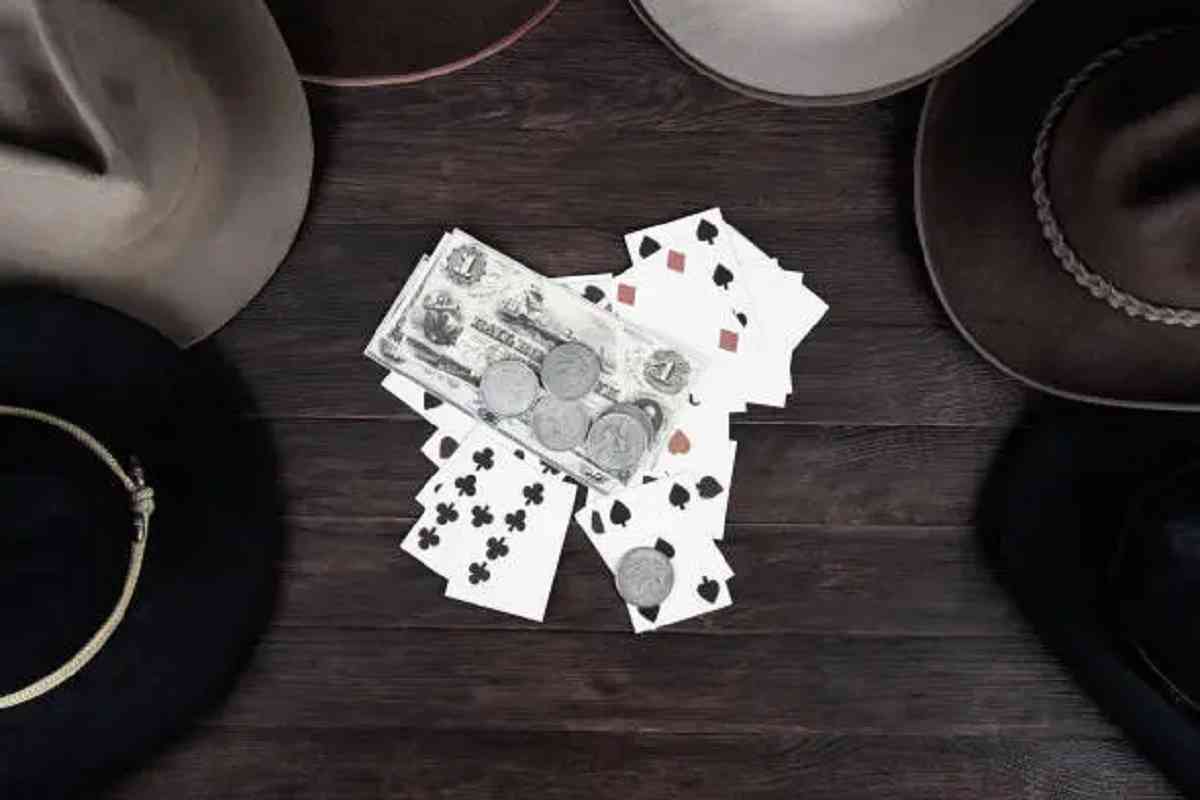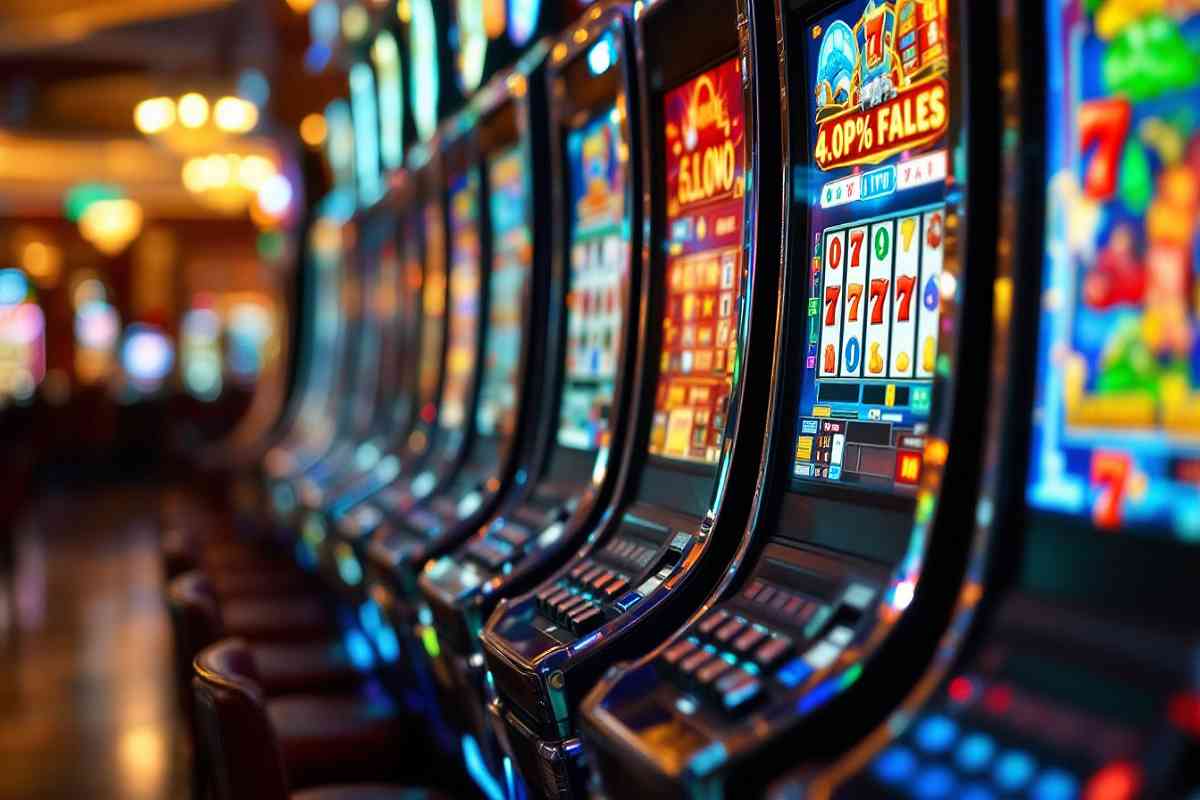The term “Gambling Cowboy” evokes images of rugged individuals roaming vast open landscapes, balancing the harsh realities of life on the range with the intoxicating lure of chance. This article delves into the rich connection between cowboys and gambling, exploring historical facts, cultural significance, and the inherent risks and rewards involved in this intriguing lifestyle.
The Rise of the Gambling Cowboy: A Historical Perspective
The roots of gambling among cowboys can be traced back to the early days of the American West. As cattle drives became a significant part of frontier life, cowboys sought ways to pass the time during long journeys. Card games such as poker and rummy became prevalent, providing a welcome distraction from the rigors of their daily tasks.
These games served as more than mere entertainment; they were also a means of socializing and forging bonds among ranch hands. The gambling culture that developed during this time was both a reflection of the camaraderie shared among cowboys and a way to assert their identities in a challenging environment.
As the sun dipped below the horizon, the flickering glow of campfires illuminated the faces of weary cowboys gathered around makeshift tables. The sounds of laughter and playful banter filled the air, punctuated by the occasional clink of coins and the shuffling of cards. These nightly gatherings were not just about the thrill of winning or losing; they were a ritual that fostered a sense of belonging and community. The stakes could be high, with everything from a few cents to a prized saddle on the line, and the tension in the air was palpable as players strategized their next moves, each hoping to outsmart their opponents.
Moreover, the gambling cowboy was often seen as a figure of rugged individualism, embodying the spirit of the frontier. Legends of notorious gamblers like “Wild Bill” Hickok and “Doc” Holliday emerged, their exploits becoming the stuff of folklore. These characters not only popularized the games they played but also contributed to the romanticized image of the cowboy in American culture. Their stories, filled with daring and deception, painted gambling as an integral part of the cowboy’s life, intertwining their fates with the unpredictable nature of the Wild West itself.
The Allure of the Open Range: Why Cowboys Turn to Gambling
The open range embodies freedom, adventure, and uncertainty, much like the nature of gambling itself. For many cowboys, the thrill of placing a bet mirrored the risks they faced in their everyday lives. Whether confronted with unpredictable weather, the behavior of livestock, or the dangers of hostile territory, cowboys were accustomed to embracing uncertainty.
This affinity for risk extended to games of chance. The prospect of winning not just money but also respect and social status made gambling particularly appealing. In many cases, a successful bet could provide a substantial financial boost, allowing a cowboy to stake his claim in a community that valued boldness.
Moreover, the social aspect of gambling added another layer of allure. Saloon doors often swung open to reveal a world where cowboys could gather, share stories, and engage in friendly competition. The camaraderie built around a poker table or a game of dice fostered a sense of belonging among men who spent long hours alone on the range. The laughter, banter, and occasional tension created an atmosphere that was both exhilarating and comforting, a welcome respite from the solitary life of cattle herding.
Additionally, the games played in these establishments often served as a microcosm of the larger struggles faced on the frontier. Each hand dealt or roll of the dice was not just a game but a reflection of the unpredictable nature of life itself. The stakes were high, and the outcomes uncertain, mirroring the very essence of a cowboy’s existence. As they navigated the complexities of both the game and their lives, cowboys found a unique sense of identity and purpose, reinforcing their resilience in the face of adversity.
High Stakes and High Plains: The Intersection of Risk and Adventure
As with any form of gambling, the stakes often climbed in direct relation to the excitement of the game. Cowboys frequently pushed boundaries by engaging in high-stakes poker games, where fortunes could change in the blink of an eye. The tension surrounding these events added to the allure, creating an atmosphere charged with adrenaline.
The intersection of risk and adventure in gambling is particularly pronounced during late-night games in saloons. Cowboys would gather, their voices raised as they shared stories and celebrated wins or mourned losses. The community aspect of these games transformed what could have been a solitary endeavor into a collective experience filled with camaraderie and shared risk.
From Cattle Drives to Card Tables: A Historical Perspective
Historically, the transition from cattle drives to card tables signifies a shift in lifestyle for many cowboys. After long days spent herding cattle, the evenings often called for a reprieve in the form of gambling. This environment allowed them to unwind and forget their troubles, if only temporarily.
This cultural evolution established gambling as not simply an escape, but an integral part of cowboy life. As the cattle industry changed and ranching evolved, so too did the forms of entertainment, leading to the development of more refined games and gambling establishments as the West became more civilized.
The Psychology of a Gambler: What Drives the Cowboy’s Bet
The psychology behind a cowboy’s decision to gamble is multi-faceted, often influenced by factors such as personality, risk tolerance, and social dynamics. Many cowboys are drawn to the thrill of the unknown and the possibility of a favorable outcome, which aligns well with their adventurous spirit.
Additionally, gamblers often share a unique bond, reinforced by the highs of winning and the lows of losing. This sense of community offers a psychological boost and fulfillment that many cowboys crave, contributing to their motivation to engage in gambling activities.
Tales from the Trail: Legendary Gambles in Cowboy Lore
The history of cowboys is filled with legendary tales of remarkable gambles that have become folklore. Stories of near-mythical figures such as Wild Bill Hickok, famous for his poker skills, highlight the intertwining of skill, chance, and bravado in the cowboy mythos.
Many of these narratives serve as cautionary tales, illustrating the potential consequences of high-stakes gambling. The thrill of these legendary tales encourages the continuation of gambling traditions among modern cowboys, who draw inspiration from their predecessors.
The Role of Luck and Skill in the Cowboy’s Game
The balance of luck and skill is a critical element in the game of chance, particularly for cowboys. While the unpredictable nature of cards and dice ensures an element of fate, skill in reading opponents and making calculated decisions can turn the odds in one’s favor.
Nonetheless, this blend of chance and skill creates a dynamic that fascinates both participants and spectators alike. In a world often dominated by uncertainty, the ability to influence outcomes can provide cowboys with a sense of control, even as they navigate the unpredictable terrain of life.
Modern-Day Cowboys: How Gambling Has Evolved
Today, the image of the traditional cowboy has evolved, yet the essence of the gambling cowboy remains. Modern-day cowboys may participate in online gambling, introducing a new dimension to the age-old pursuit of chance. The rise of technology has reshaped the experience, making it more accessible while also offering new challenges.
Furthermore, contemporary interpretations of cowboy culture reveal a fusion of tradition and modernity. The principles of risk, reward, and community remain integral, regardless of the format in which gambling is pursued.
The Impact of Gambling on Cowboy Culture and Community
Gambling continues to impact cowboy culture and community dynamics significantly. Establishing social bonds around games and wagers cultivates a sense of belonging and collective identity. Pivotal events such as tournaments or rodeos often include weekend poker games, fostering local camaraderie.
However, it’s essential to acknowledge the potential negative consequences associated with gambling. Striking a balance between enjoying the thrill of the game and managing its risks is crucial for the well-being of individuals and their communities.
Strategies for Success: Lessons from the Gambling Cowboy
Success in gambling, much like in life, often hinges on strategy and foresight. Cowboys have learned over time that developing a keen understanding of odds, setting limits, and recognizing when to walk away are essential practices for responsible gambling.
- Know your limits: Establish financial boundaries to prevent significant losses.
- Study the game: Familiarize yourself with the rules and strategies to improve your chances.
- Practice patience: Waiting for the right moment can lead to better outcomes.
These lessons reflect the need for wisdom and resilience, highlighting how the gambling cowboy navigates both the casino table and the open range.
The Consequences of Risk: Stories of Triumph and Tragedy
The allure of gambling does not come without its consequences. While many stories celebrate triumphs and windfalls, others deliver cautionary tales of loss and despair. Cowboys who bet more than they could afford sometimes faced dire consequences, both financially and socially.
These narratives serve to remind present-day cowboys of the dual nature of risk: it can be exhilarating yet perilous. Learning from these experiences fosters a deeper understanding of the impact that gambling can have on individuals and their communities, emphasizing the need for reform and balance.
In conclusion, the journey of the gambling cowboy is a complex tale woven through history, psychology, and culture. By examining their connection with gambling, we uncover not just a lifestyle marked by risk and reward but also the enduring importance of community and personal responsibility within this iconic archetype.









